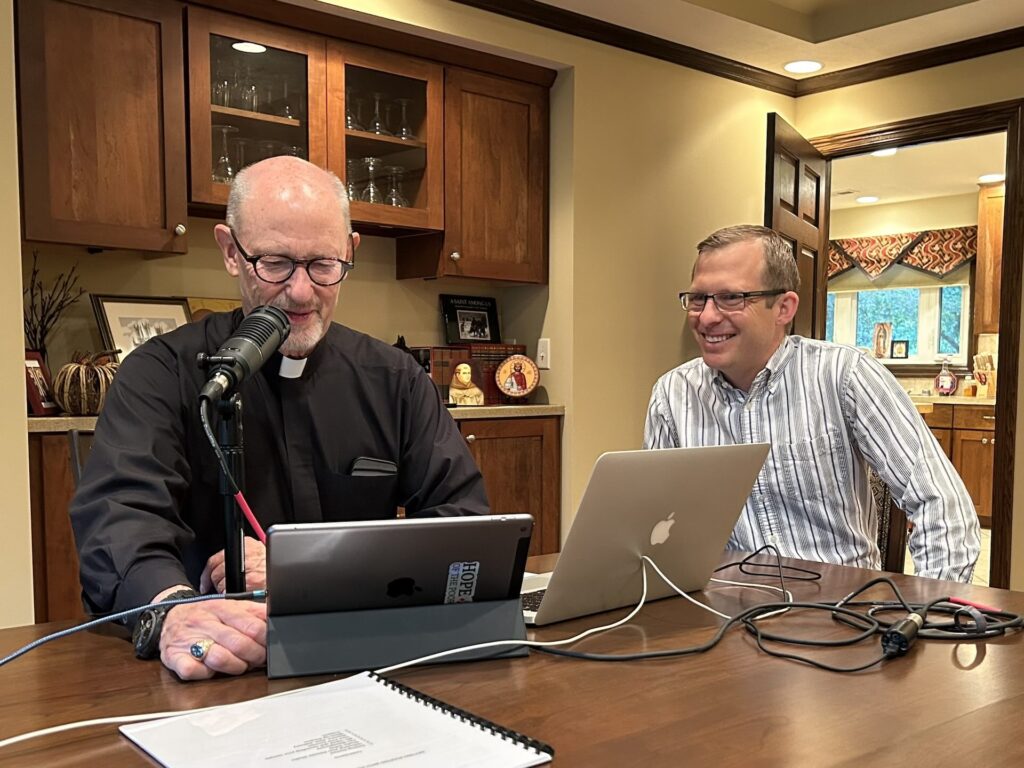Freedom is defined by our power to choose God, not to neglect him.
“For freedom Christ has set us free” (Galatians 5:1).
God has given us the chance to make our love grow, thus potentially multiplying the force with which we seek him.
While rocks cannot stop themselves from falling, they also cannot make themselves fall faster.
The more acts of charity we make, however—the more attentive we are to God and our relationship with him—the more our love grows in intensity.
The gift of charity exists in us like a disposition to action; it is our will’s disposition to move toward God and neighbor.
We have many such dispositions: dispositions to reading, exercise, playing the piano, moral virtue, etc.
Normally, we acquire such dispositions by practice.
But charity is utterly, gratuitously given, and once he has given it to us, Christ then invites us to use this gift to become a co-worker with him.
As we exercise our charity, it grows, becoming more securely rooted in us and more intensely expressed.
St. Thomas Aquinas writes, “Each act of charity disposes to an increase of charity.
One act of charity makes man more ready to act again according to charity, and this readiness increasing, man breaks out into an act of more fervent love, and then his charity increases.”[1]
The more we love, the more we tell God, “I love you” or make silent acts of love to God in our hearts throughout the day, the more our longing for God will increase.
The more strongly we feel ourselves drawn to God, the more restless in this world we will be.
Similarly, the more we commit acts of charity to our neighbor, whether through almsgiving, kind words, or the like, the more our charity toward them will increase.
As we grow in charity, we progress through two degrees of charity to reach its ultimate end, perfection.
The beginning degree of charity is defined by trying not to sin, that is, trying to not act contrary to the force of charity within us.
In the progressing degree of charity, the chief aim is to increase in charity.
No longer is a man struggling not to act contrary to charity, but rather devotes his energy to how he can love better.
This stage is like when a husband is no longer worried about his girlfriend breaking up with him.
Now married, he can forget such old flames.
Instead, he is free to focus entirely on how to love his wife better, confident that they have vowed not to leave each other.
Lastly, at the highest stage of earthly charity, a man’s heart is almost already at perfect rest in God.
All he desires is “to depart and be with Christ” (Philippians 1:23).
The way to progress in charity, however, is the same for every degree: daily, small acts.
For those who are struggling with a sin, resist that temptation with great love.
For those striving to love more purely, strive to do so consciously, with great love. St. Thérèse of Lisieux tells of a time when she spilled a box full of sewing pins.
She immediately bent down and, as she picked up each individual pin, she said, “I do this out of love for you, my God.”
Every action is an opportunity for us to increase our charity.
Reflect on the upcoming day.
What opportunities will you have to make little acts of great love?
Try to think of an act of love directed to God and another directed to a brother or sister in Christ.
Ask the Holy Spirit to inspire you throughout the day to make deliberate acts of love.
- St. Thomas Aquinas, Summa Theologiae, II-II, q. 24, a. 6.




